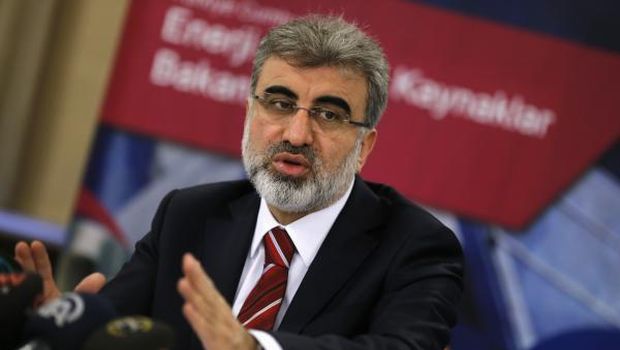
Turkey’s Energy Minister Taner Yıldız speaks during a news conference in Ankara January 2, 2014. Yıldız said on Thursday that oil from Iraqi Kurdistan had started flowing via a Turkish pipeline, but would not be shipped abroad without the consent of Baghdad. (Reuters/Umit Bektas)
Ankara, Reuters—Crude oil from Iraqi Kurdistan has started flowing via a new pipeline to the Turkish Mediterranean export hub of Ceyhan, but will not be shipped to world markets without the consent of Baghdad, Turkish Energy Minister Taner Yıldız said on Thursday.
Yıldız hopes a deal can be reached this month for exports to begin, he told a news conference in Ankara.
Flows through the pipeline would start at 300,000 barrels per day (bpd) and rise to 400,000, he said.
Turkey signed a multi-billion-dollar energy package late last year with Iraqi Kurdistan (KRG), under which the semi-autonomous region planned independent energy exports via Turkey.
Kurdistan could eventually export some two million bpd of oil to world markets and at least 10 billion cubic meters per year of gas to Turkey.
Its bid to export oil and gas independently of Baghdad has infuriated officials in the Iraqi capital, which claims sole authority to manage Iraqi oil.
Turkey has been working to get the central government on board before exports start.
“The flow of crude oil from Iraq has begun. It is being stored. It will not be exported without the consent of the Iraqi government,” Yıldız told the news conference.
The Turkish–KRG deal has significance for major oil companies as well as for the Kurds and Turkey, which stands to benefit from domestic supply and onward westward export through Ceyhan.
Kurdistan has struck deals with ExxonMobil, Chevron and Total among others as it seeks to develop its energy industry.
Ankara has set up the Turkish Energy Company (TEC), a state-backed entity which has struck partnership deals with Exxon and will be Turkey’s counterparty in dealings with Kurdistan.
Yıldız visited Baghdad in December for talks with Iraq’s Deputy Prime Minister Hussein Al-Shahristani, who has long opposed Turkey’s courtship of the Kurdish region.
Baghdad says Kurdish efforts towards oil independence could lead to the break-up of Iraq, but Turkey has repeatedly said it respects Iraq’s sensitivities over territorial integrity, and that increasing oil revenues will help the whole of the country.
